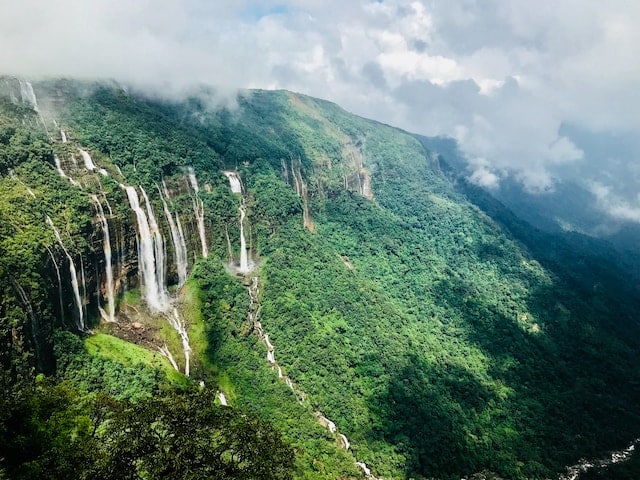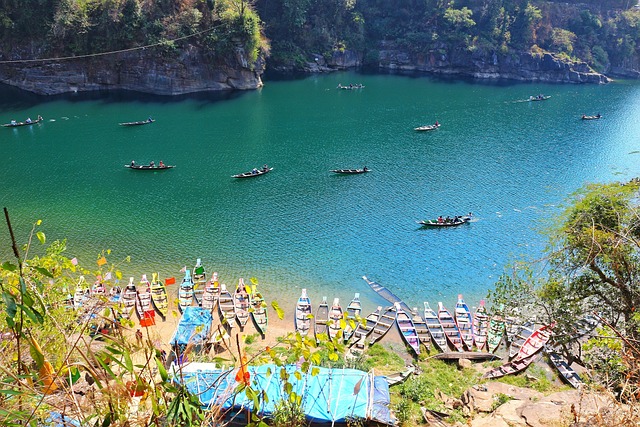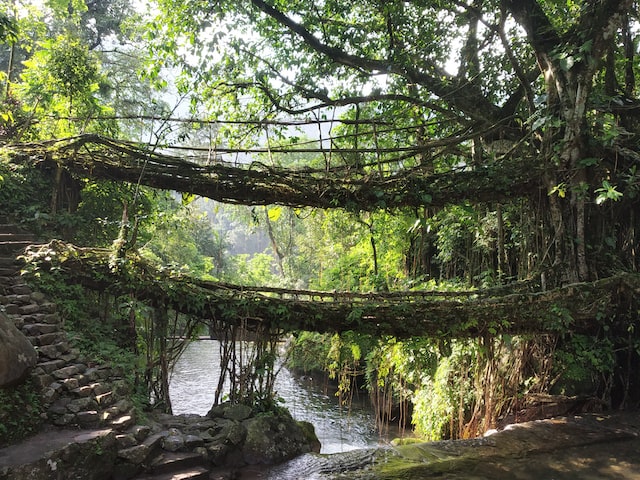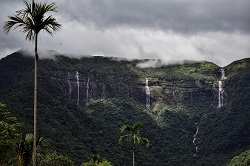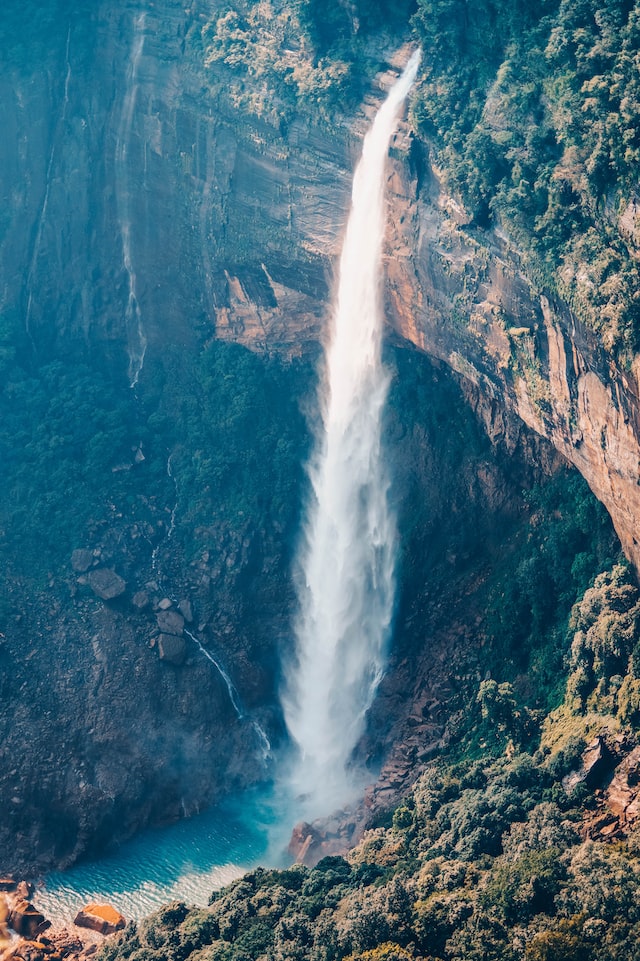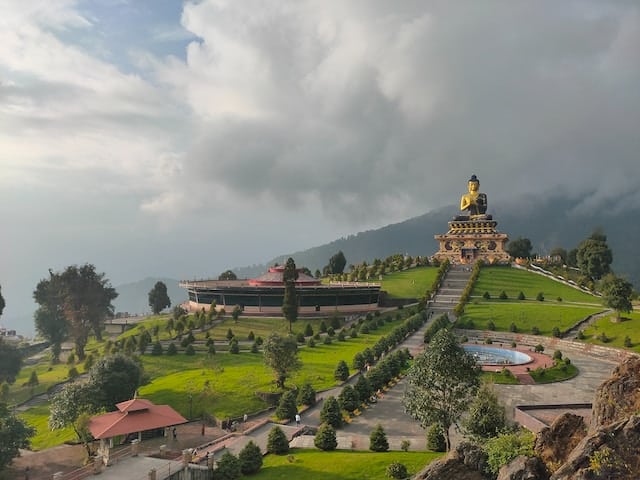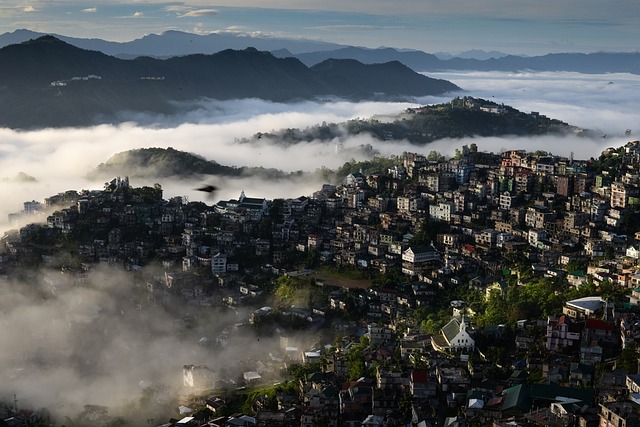Photos
Indian Culture Description
Capital: Shillong
Languages: English(official), Khasi, Pnar and Garo
Tourist places: Cherrapunji , Shillong, Kyllang Rock, Elephant falls , Nohkalikai falls, Garo hills
Unique local Industries: Handcrafted black Clay Pottery, Wood carving, Cane and Bamboo work carpet weaving, Sericulture
Famous food: Nakam bitchi, Pumaloi, Doh-Neiiong, Tungrymbai, Pudoh
Dances: Laho, Nongkrem, Shad Suk Mynsiem, Doregata
Meghalaya, which means ‘abode of clouds’ as per Sanskrit, is one of the seven sister states of northeastern India. This region is said to be inhibited by humans since neolithic age. Archeologists found evidence of human settlement in Khasi and Garo Hills of Meghalaya. When British occupied India, the then Britishers called Meghalaya as Scotland of the East.
Three fourth of the state is covered with splendid forests, streaming rivers, lush green valley and breathtaking scenic beauty. Meghalaya’s tropical forests are among the abundant botanical habitats of Asia, receiving plentiful rainfall with extensive diversified flora and fauna. Jaintia Hills on the eastern part of Meghalaya offers captivating views, cliffs, tablelands, waterfalls and pristine forests. Mawsynram region in Meghalaya is the world’s wettest region with an annual rainfall of 11871 mm. The second world’s wettest region is Cherrapunji which is located 15 kms away from Mawsynram. With extensive rainfall and the region being on the mountains, tourists can view the most beautiful waterfalls with greenery all around. Nohkalikai falls in Meghalaya is the India’s tallest plunge waterfall. Elephant and Bishop waterfalls in Shillong are few more scenic places.
Varieties of wild citrus fruits, endemic medicinal plants, carnivorous plants and more than 50 species of mammals take home in the Garo Hills region of Meghalaya. With lot of caves and hills, some of these species were untouched for centuries. Few of them provide gene pool to the modern day citrus fruit plants. With two national parks and 4 sanctuaries, tourists can see Hoolock Gibbons, herds of Asiatic Elephants, Leopards, Capped and Golden Langurs, giant Squirrels, Hornbills, Blue-throated Barbet, Crimson Sunbirds, Verditer Flycatchers and many more. For wildlife photographers, Meghalaya is like an open studio.
People of the Garo tribe follow a matrilineal social system, where inheritance comes from women. Tribals of Garo and Khasi have mastered the art of building bridges with tree roots. These natural bridges can last for almost 600 years! With 1248 registered caves, Meghalaya is of the best caves destination in the world. South Asia’s longest natural cave, Krem Liat Prah is in Meghalaya. Till now Indian, American, European and Middle Eastern cave experts mapped 34 kms of this cave and the work is still in progress.
Tourists can take wide range of souvenirs from Meghalaya which includes a variety of bamboo carpets and baskets, handcrafted wood carvings, black clay pottery items and many more. With lot of wood and bamboos, people of Meghalaya are masters of making mesmerizing products out of these natural resources. Lyrnai and Trychiang are two villages in Meghalaya that are quite popular for their black clay pottery making process which is considered unique in the world. Sericulture is another popular local industry in Meghalaya.
Visited 2622 times, 8 Visits today

